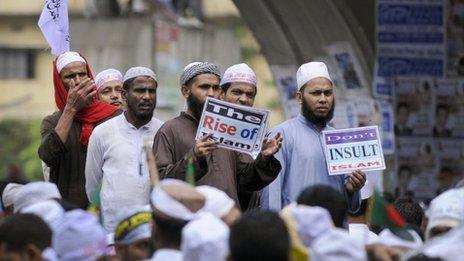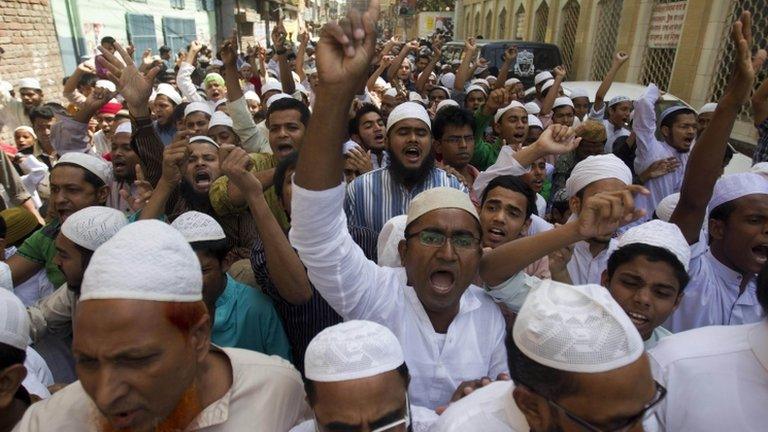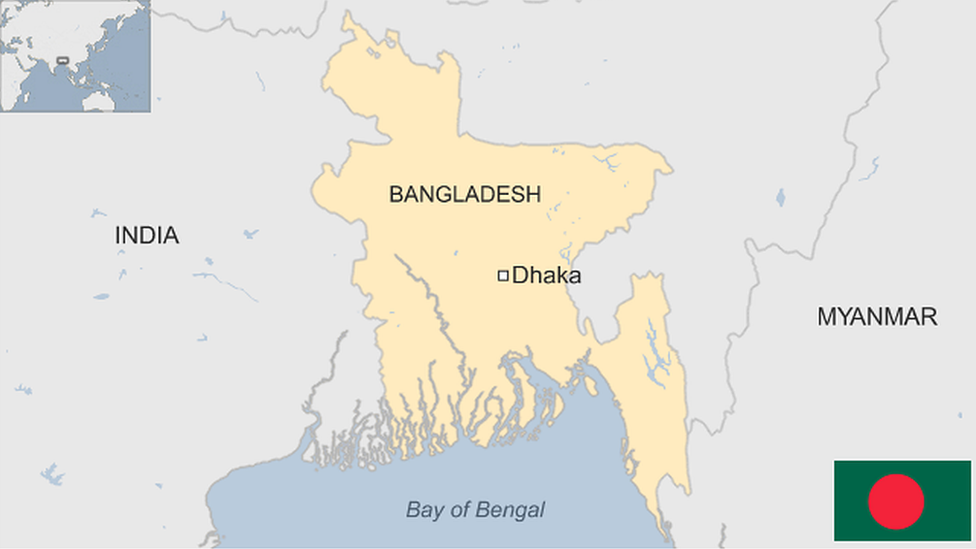Hefazat-e Islam: Islamist coalition
- Published

The Hefazat-e Islam is a tightly-knit coalition of a dozen or so Islamist organisations which have come together under one umbrella only in recent years.
It has traditionally not sought power through elections, but looks to use its street muscle to change Bangladesh's traditional secular culture and politics through the imposition of what it believes are proper Islamic ways.
The organisations in the Hefazat coalition are based at more than 25,000 madrassas, or religious schools, across Bangladesh.
Teachers at these madrassas belong to these organisations and all students are brought out en masse to participate in street rallies and marches.
Hefazat burst onto the scene in February following the killing of young blogger Rajib Haider.
The murdered blogger and his associates had launched the Shahbag campaign to demand the death penalty for a political leader convicted of war crimes committed in 1971.
Haider and other bloggers were subsequently accused by Islamists of being atheists who had written comments derogatory of Islam and its Prophet.
They served notice on the governing Awami League by gathering half a million supporters in Dhaka on 6 April, where the main slogan was "hang the atheist bloggers".
Since then Hefazat has launched a 13-point charter of demands. These include:
enactment of an anti-blasphemy law with provision for the death penalty
exemplary punishment to all bloggers and others who "insult Islam"
cancellation of the country's women development policy
a ban on erecting sculptures in public places
a ban on mixing of men and women in public
a ban on candlelit vigils
ending what they call "shameless behaviour and dresses"
declaring the reformist Ahmadiyas as "non-Muslims".
The government of Sheikh Hasina has sought to treat Hefazat softly, and preferred to engage in negotiation.
It sees Hefazat as less militant than the Jamaat-e-Islami, many of whose leaders are currently facing charges related to crimes against humanity committed in 1971.
Hefazat also has theological disputes with Jamaat, although the latter has given all-out support to Hefazat in its current campaign.
Hefazat's detractors see its activities as little more than a cover of support for Jamaat's often-violent campaign to derail the war crimes trials.
Islamists say Hefazat is campaigning to "save Islam" in Bangladesh, but its opponents fear it will throw the country back into the dark ages.
Some of the groups under the Hefazat banner played a key role in the mass demonstrations in 1994 which forced the feminist write Taslima Nasreen to seek asylum in Sweden.
They have also been relentless in their campaign - so far unsuccessful - to have the Ahmadiyas (Islamic reformists) declared as "non-Muslims", as has been the case in Pakistan.
- Published8 April 2013

- Published6 April 2013

- Published10 March
